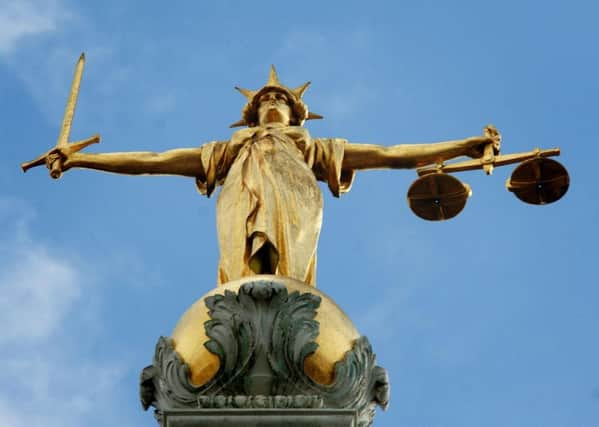Alleged head of crime network denied bail


Mr Justice Colton rejected defence claims that Malcolm McKeown should be granted bail due to insufficient evidence connecting him to the charges.
McKeown, 51, of Ashleigh Crescent in Lurgan, Co Armagh, was arrested as part of an investigation into suspected intimidation and drugs offences.
Advertisement
Hide AdAdvertisement
Hide AdBetween October 2015 and July 2016 attacks were carried out on 27 cars in Craigavon and surrounding areas, prosecutors said.Three of the arson attacks were carried out at the homes of serving PSNI officers.
Crown lawyer Kate McKay said none of the others targeted have co-operated with detectives due to their fear of reprisals.
McKeown faces charges of encouraging or assisting offences, and being concerned in the supply of Class A and Class B drugs.
Counts of arson were thrown out at an earlier stage due to a lack of evidence connecting him, the court heard.
Advertisement
Hide AdAdvertisement
Hide AdA covert surveillance operation centred on other suspected members of the crime ring forms part of the prosecution case.
It was also disclosed that a co-accused told police he was being forced to deal drugs for Loyalist Volunteer Force paramilitaries to avoid punishment.
Although he did not name McKeown, the pair are allegedly linked through test messages.
Mrs McKay argued that McKeown played a central role in the crime ring.
Advertisement
Hide AdAdvertisement
Hide AdShe said: “Police believe this man is at the top of this gang which, if anyone crossed them, is effectively dealt with in the manner described – by their vehicle being set on fire.”
Defence counsel contended that there was no prima facie case against McKeown on any of the remaining charges.
Nothing has been produced to directly link him with any drugs supply, he insisted.
Evidence obtained from the covert recordings and texts were described as nothing more than hearsay.
However, Mr Justice Colton held that a prima facie case has been established.
Denying bail, the judge cited the risks of re-offending or interference with potential witnesses.